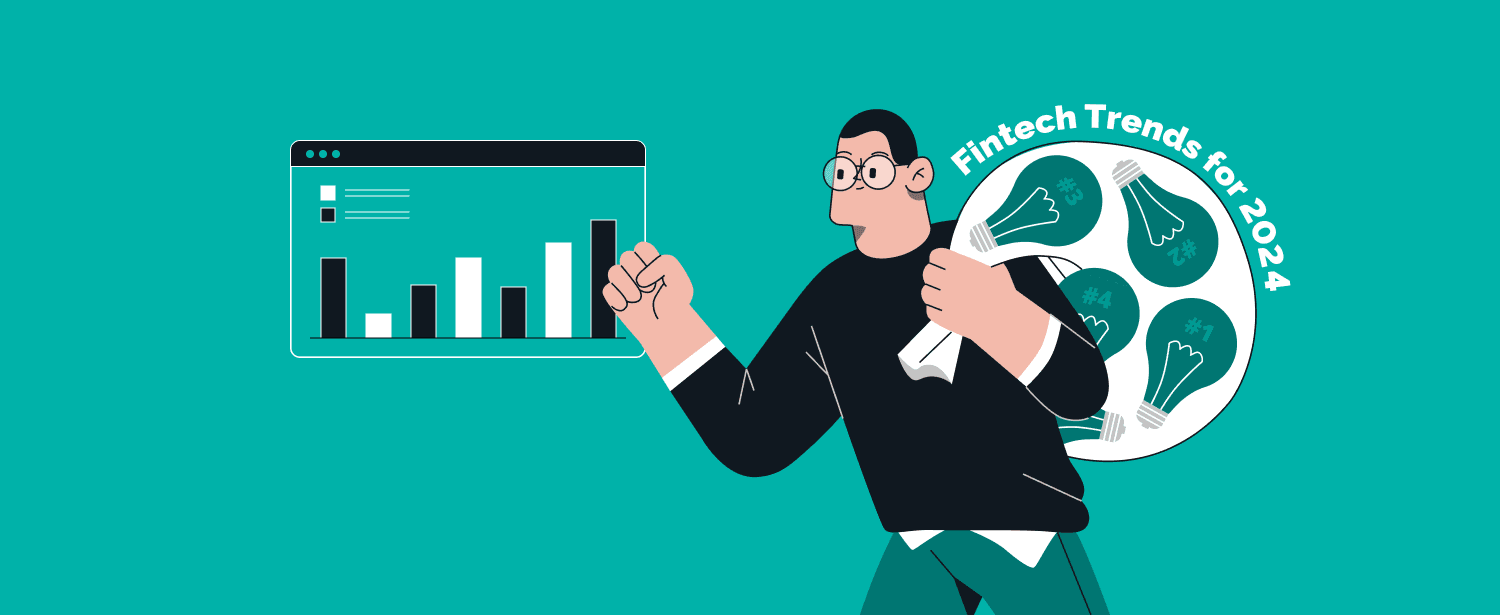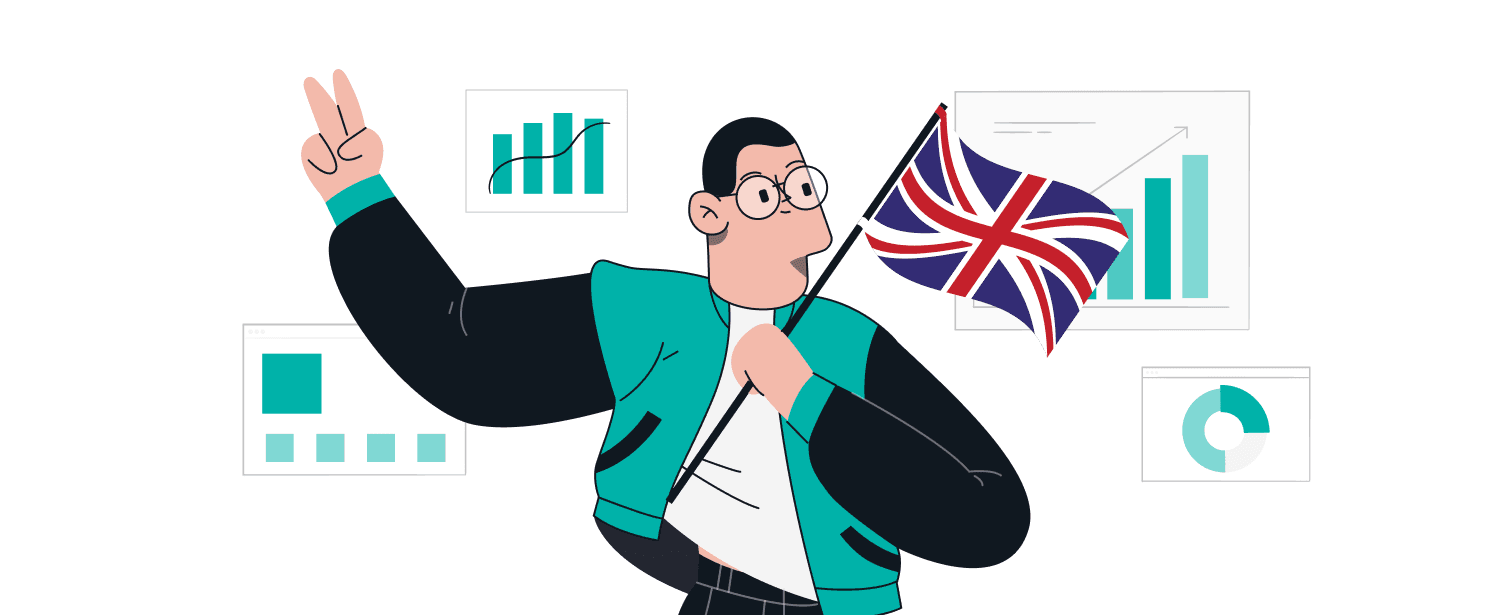10 HR Tech Startups That Take Off In Europe
Last updated:30 November 2022
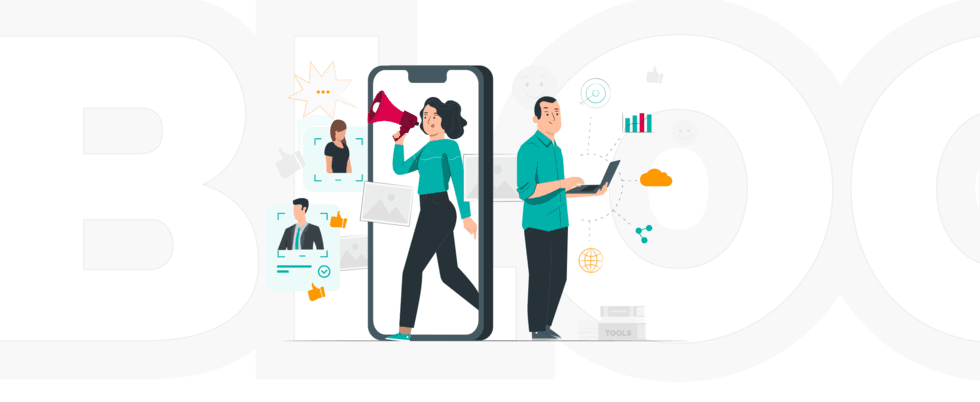
Top HR tech trends have changed a lot in the last years. Learn more about dominant human resource technology trends!
Human resources are inevitably centered around people — finding the right ones for the project, motivating them to do their best in the workplace, and helping team members build meaningful relationships.
However, the last 20 years turned the way companies approach talent management upside down by introducing technology and automation. HR management systems help keep track of hiring, monitor employee attendance, and improve retention rates.
There are many innovations that have yet to spread in the HR field. How will technological advancements, the societal awareness of workplace issues, and the integration of Gen Z into the workplace change talent management? Here are 15 trends in human resource management that will shape the future of HR.
1. HR Tools Migrate to Cloud

Nowadays, many companies struggle from disconnect between the different areas of human resources management. Talent managers have to rely on multiple solutions to automate hiring, onboarding, performance evaluation, and payroll.
Cloud-based HR tools will help increase the accessibility of HR technology, giving all members on the team a possibility to access relevant workplace data anytime. The benefits of cloud talent management solutions as one of the current trends in HR management are prolific:
- Reducing the risk of human error during the data input process;
- Foster interdependence within the team and promote collaboration;
- Reduce the overhead for handling day-to-day assignments;
- Save businesses time and money;
- Are more flexible and easier to update, as opposed to a dispersed toolkit.
2. Technology upgrade for remote work
2020 has marked a massive shift towards remote work. While this has been a slow-developing trend for the last decade, the pandemic has boosted it and made working from home a reality for employees. Obviously, new HR tech trends were bound to follow.
Companies have to make sure that remote employees from different locations and time zones have the same learning opportunities and there are no scheduling problems in the working process. While there were multiple examples of HR software that accommodates remote work, 2022 will see a better variety in such products and an overall improvement in their quality and various features offered.
3. Focus on data security
With a bigger reliance on the tech sector and cloud technologies, the need to protect sensitive and personal data comes. Recent legislation passed in support of data privacy and security (like GDPR) also has contributed to this becoming one of the top HR tech trends.These latest HR technology trends focus not only on the increased security as an additional software feature but also force companies to adopt new procedures. If you want to implement a system with better data management and security in your business, you need your HR professionals to prepare your employed workforce for the transition and changes in conduct.
4. Employee self-service tools
Human resources managers are seen as a link between project (management) and execution (employee) teams, and thus often overloaded with tasks and assignments. A talent manager used to be every employee’s go-to person for workplace updates or data gathering.
The good news is, the leap in technology in HR enabled the growth and development of self-service tools. Such platforms help talent managers to keep the team updated without having to answer each employee’s questions.
The impact of self-service tools will be tremendous once they are commonplace among businesses. Here are the benefits companies access when integrating a self-service platform into the workplace:
- Higher administrative task efficiency;
- Improved transparency — employees can see the sources of any workplace data and validate them;
- Real-time updating for workers;
- Boosted team morale, reduced burnout.
5. Blockchain integration
As companies embrace digital transformation, business managers will have to tackle new challenges — such as data security and access management. That’s why teams will consider implementing HR tech trends, such as blockchain solutions, to ensure data integrity and workplace transparency.
These are the major objectives blockchain integration will help HR managers achieve:
Standardization
As the latest HR trends enter the market, it’s getting increasingly harder to create a unified data storage and sharing standard. Depending on a toolset a team uses, employee info may be stored in different formats and values.
Via electronic distributed ledger technologies, HR managers can create and share development practices between software developers and peers. Blockchain will improve the collaboration between talent departments exponentially and will provide software programmers with development guidelines, thus increasing the quality of HR organization systems.
Trust
Thanks to key-based access, blockchain ledgers are considered tamper-proof. The technology has enormous implications for access management — businesses can ensure that only trusted people have data access, weeding out fakes or potential attackers.
Initiatives like the Trusted Global Network for HR Data will facilitate data access for eligible parties. On the other hand, Identity Access Management will ensure data storage security.
6. People analytics tools
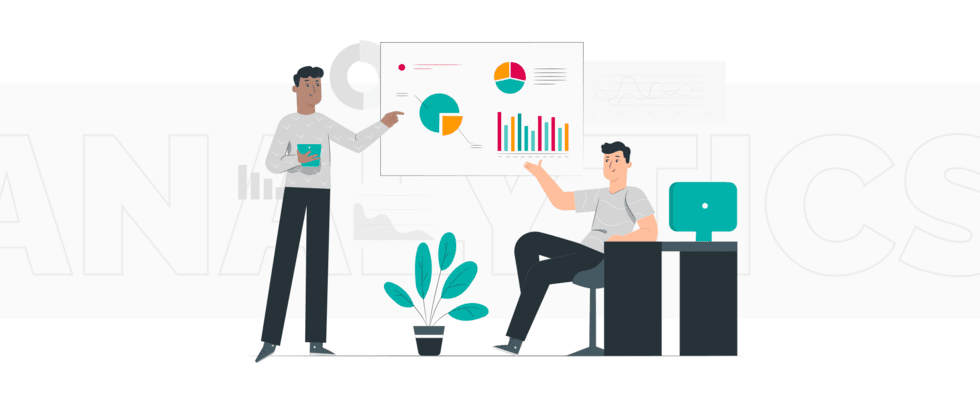
One of the issues that affects employee retention rates and overall project productivity is the discrepancy between the company’s goals and those of the team. Businesses unknowingly fail to provide talent with growth and development or are targeting the wrong areas.
People analytics tools are a missing link between business managers and employees. They use data science and artificial intelligence to research, collect, process employee data, and discern patterns from it.
Here’s how analytics tools can be used in different stages of human resources management:
- Training — determining the employee’s preferred learning style and ambitions, to encourage team members to hone their skill set;
- Engagement — mapping out employee engagement levels, determining the factors that contribute to the fluctuations, receiving customized reports with relevant team management tips;
- Employability — mapping out the ways to use the company’s internal workforce to avoid having to hire new employees.
In general, people analytics tools offer employers a general outlook on the state of the workplace.
an HR tech app that was acquired by StepStone
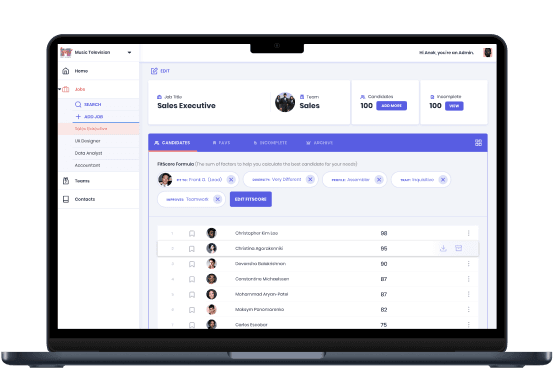
7. Real-time performance management
A feedback-driven system has been proven to be efficient in numerous industries. Project management methodologies like Agile are built on stage-by-stage feedback that helps ensure that the product will match the contract agreement.
In human resources, getting constant feedback on employee performance or satisfaction is not among current HR trends yet. The good news is, real-time performance management tools will offer employees and HRs more visibility into the team’s performance. Talent managers will be able to determine which employees struggle to contribute to the project and find ways to integrate them into the working environment more efficiently.
Tech giants like Deloitte and GE use performance management tools to improve the quality of project contributions and monitor employee satisfaction. Here’s why HR departments should use real-time performance tracking tools:
- Fosters learning and development;
- Motivates employees by tracking their accomplishments;
- Increases competence utility.
8. Employee wellness management with a focus on mental health
A recent study has found that working long hours can lead to an extreme spike in the risk of dying of heart disease later in life. Furthermore, overworking is connected with a drop in productivity, as well as an increased risk of mental health problems, including anxiety and depression.
That’s why employee wellness management is one of the latest trends in HR software development. Not only does it improve the health and wellbeing of the employees, but it also allows setting realistic expectations in terms of performance and increases the chances of achieving business success.
The management of employees’ mental and physical wellness is often achieved by employing another one of the top HR technology trends – gamification. An HR platform can include certain milestones and achievements that can push people to take breaks, exercise, and give feedback on their well-being.
9. Biometric time tracking
Employee attendance management is vital for successful workplace control. However, most companies still use outdated tools to determine the working time of their teams — from spreadsheets to paper trails.
Biometric scanners are the future HR trends in employee tracking. For one thing, they are hard to fake as your team members can’t forge fingerprints. Also, biometric tracking tools are hacker-proof and store data in private vaults.
Biometric fingerprint readers help avoid buddies from punching in and eliminate time theft. The technology can be applied for remote employee management as well as fingerprint scanners are easy to integrate with smartphones.
10. Connected platforms in the workplace
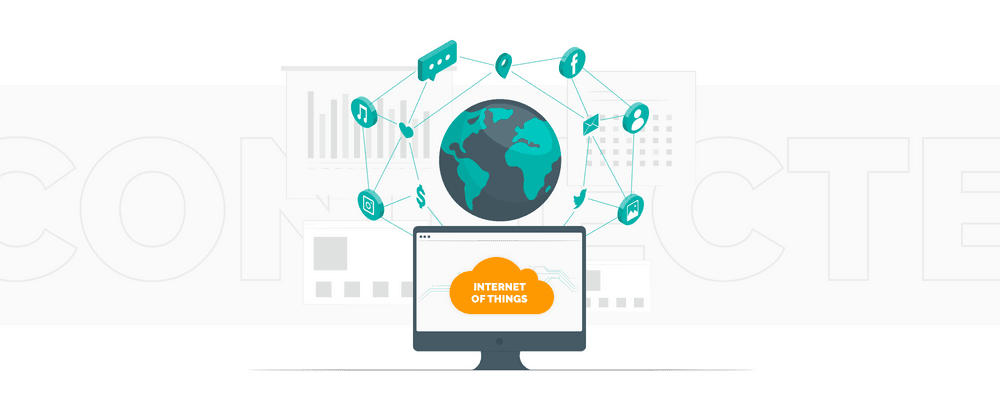
IoT has become a significant part of digital transformation within the workplace. The frontrunners in tech-driven talent managers use connected tools to track employee productivity and harness relevant health data to ensure an employee is not putting himself at risk for workplace-related injuries.
Thanks to IoT-empowered activity trackers, talent managers can promote a healthy lifestyle within the team and facilitate the negotiations with health insurance providers.
The Internet of Things offers a range of training and education possibilities, allowing employees to get access to learning materials on-demand without interrupting the completion of the task.
Connected wearable trackers introduce new ways to increase workplace security and monitor employee safety. A talent manager will be able to track the location of every employee in no time, fostering faster and more efficient ways to connect with the team.
11. Gig economy and contractors
No discussion of trends in HR technology will be complete without mentioning the ever-shifting focus towards the gig economy and contractors hiring. This shift is beneficial for all the parties involved. Employers get to find and hire people with an appropriate set of skills at any point during the projects easily and fast. Employees get to dictate their own terms and conditions when working with companies. Traditional HR software platforms do not accommodate this type of relationship, but they are increasingly starting to implement management tools that support the gig economy.
12. Harassment-reporting tools
The ‘Me Too’ era introduced new human resources industry trends, propelling talent managers to come up with faster, non-invasive, and more efficient ways to report sexual harassment. Thanks to technological advancements, employees don’t necessarily have to schedule an in-person meeting to notify the management of a co-worker’s abusive behavior.
There are dozens of tech solutions for accessible and accurate harassment reporting. The most common ones are:
- Workplace discrimination reporting platforms;
- Anonymous reporting tools;
- Messenger chats;
- Hotlines;
- Tools for bias identification in interviewing.
13. AI in employee management
Talent management is a hectic process with lots of last-minute changes, requests to monitor, and openings to fill. To streamline employee management, hiring teams actively turn to artificial intelligence. In the future, artificial intelligence will be one of the most influential human resource technology trends. It’ll help automate most monitoring operations, leaving managers with more time to plan, strategize, learn, and work on personal development. AI is also gaining ground in the actual screening process where companies can potentially gain a massive efficiency boost by using AI recruiting tools. Many vendors are claiming their AI-driven systems can help reduce a pool of several hundred applicants down to a shortlist of the 5-6 with the highest potential.
Here are the most common AI objectives in the workplace:
- Intelligent employee scheduling — determining how much workforce you need to handle a project;
- Predicting last-minute changes improves the planning precision and reduces bottlenecks;
- Ensuring job candidates and employees are interviewed and treated unbiasedly;
- Automating routine tasks.
14. Employer branding tools
Company brand perception impacts a lot of the processes inside and outside the company. It is essential for the recruitment process, as it can influence the type of applicants interested in the company, their skill ceiling, and cost-per-hire.
That’s why one of the notable human resources technology trends is the inclusion of specific social media branding tools, integration of HR and management software with social media, and the inclusion of advertisements into HR companies’ conduct. Another one of the best HR tech trends worth noting is the encouragement of employee brand advocacy.
15. Using gender-neutral language in digital platforms
The increase in the number of people that identify themselves as non-binary is among the defining HR technology trends that affect the workplace. Aside from eliminating gender-related bias from the decision-making process, talent managers need to ensure they are not imposing gender-related values on employees.
Adapting all software to the worldview of people who identify themselves by a non-conventional gender is crucial for high retention rates. HR teams and business owners are already instructed on avoiding gender-related pronouns during recruitment campaigns or on the software interface. In the future, social awareness trends in HR management are likely to grow further.
Summary
The future of human resource management is closely intertwined with technology. More companies will shift to all-in-one talent management platforms and tools. To stay among the frontrunners of the field, consider integrating HR management tools into your business’ workflow.
Bring a team of experienced, innovative developers to design a custom solution. As a software product development company, we developed talent management tools for SMEs and large-scale companies that are personalised and fully customisable. Our team uses a robust range of technologies to develop desktop software and mobile apps — Node.js, Angular, React, AWS, Serverless, Salesforce, and many more.
To discuss your project with TechMagic — leave us a message. A project manager will get in touch with you in no time and will help shape your future project!

 Software Development
Software Development Security Services
Security Services Cloud Services
Cloud Services Other Services
Other Services















 TechMagic Academy
TechMagic Academy




